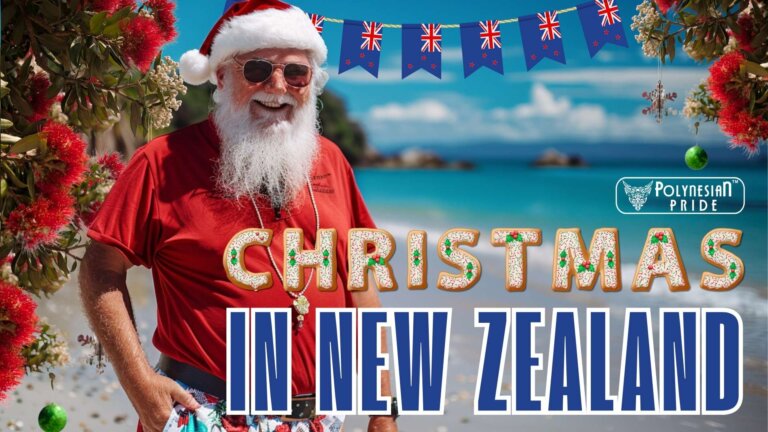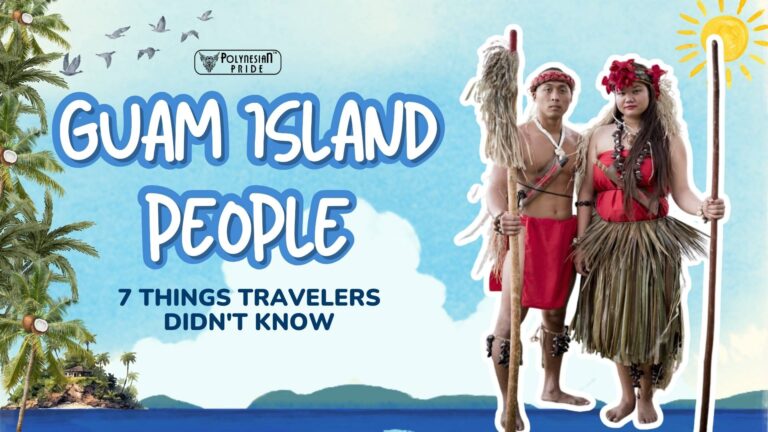Top 20 New Zealand slang: How to talk like a real Maori?

New Zealand Slang is essential to the country’s culture, offering a colorful way to engage with its people and traditions. While studying abroad in New Zealand, beyond exploring new landscapes and experiences, learning these unique expressions helps you immerse yourself in Kiwi life. From casual greetings to daily phrases, understanding this slang will enrich your journey through the country’s stunning scenery and cultural richness. Let’s dive into Kiwi slang, exploring its origins, popular terms, and practical uses to enhance your experience.
What is New Zealand Slang?
New Zealand slang refers to the informal language commonly spoken by New Zealanders, often filled with playful twists, local references, and cultural nuances. While English remains the primary language, the Kiwi version incorporates idiomatic phrases and expressions that may confuse outsiders. It embodies the country’s identity and reflects its distinctive character.
The essence of New Zealand slang lies in its ability to foster camaraderie and connection among Kiwis. The casual and often humorous tone makes conversations feel inclusive and friendly, characteristic of the prevalent laid-back attitude. Whether sharing a laugh around a BBQ or discussing the latest rugby match, knowing some local slang can bridge the gap between you and the locals, providing a sense of belonging in an unfamiliar place.

Packed with colloquialisms, New Zealand slang encompasses everything from greetings like “Kia Ora” to food-related terms such as “jandals” (flip-flops) and “chilly bin” (cooler). As you embark on your journey into the Kiwi culture, familiarizing yourself with these expressions will ease communication and enrich your interactions.
Top 20 New Zealand Slang Words You Should Know

Kia Ora
A warm Māori greeting meaning “hello” or “welcome.” Use it anytime to show respect for the culture.
Kiwi
Refers to both New Zealanders and the iconic flightless bird. Embrace your inner Kiwi!
Sweet As
Expresses satisfaction or agreement. If something’s good, say, “Sweet as!”
Chur
A casual way to say “thank you.” Use it in everyday conversations.
Yeah, Nah
A unique Kiwi way of expressing ambivalence. It politely acknowledges a point while implying disagreement.
Jandals
Flip-flops are essential for summer. Perfect for beach days or barbecues.
Tramping
Kiwis’ term for hiking or trekking, a popular way to explore stunning landscapes.
Togs
Swimwear or bathing suits. Don’t forget your togs for beach outings!
Chilly Bin
A cooler for keeping food and drinks cold, especially for picnics.
She’ll Be Right
A reassuring phrase, meaning everything will work out fine.
Bro
A friendly term of address used among friends, regardless of gender.
Dairy
A convenience store for everyday essentials and snacks.
Batch
A holiday home or beach house for weekend getaways.
Rugby
A national passion; knowing about rugby is essential for bonding with Kiwis.
Munted
Refers to something broken or damaged, reflecting a lighthearted attitude.
Wop-Wops
Remote areas far from civilization, ideal for adventure seekers.
Heaps
Indicates abundance. “Heaps” of options mean plenty to choose from.
Duvet Day
A cosy day off to relax and recharge.
Mint
Describes something excellent or in perfect condition.
Choice
Another term for something extraordinary or high-quality.
How to Start a Conversation Like a Real New Zealander?
Now that you’re armed with some slang, how do you put it to use? Starting a conversation is all about confidence and friendliness. Here are a few tips to get you chatting like a local:
Everyday Kiwi Slang Terms

- Kia Ora: This iconic greeting is more than just “hello.” It’s a warm welcome that respects Māori culture, perfect for friendly interactions.
- Sweet As: This versatile phrase expresses agreement, satisfaction, or approval. If someone shares good news, responding with “Sweet as!” conveys your pleasure.
- Chur: An informal way to express gratitude, equivalent to saying “thank you.” You’ll find yourself using this term frequently.
Kiwi Slang for Food and Drink
- Togs: This term refers to swimwear essential for beach or pool outings. Remember to pack your togs for sunny adventures!
- Chilly Bin: Unlike traditional coolers, Kiwis refer to portable cold drink and snack containers as “chilly bins.” They’re essential for picnics and barbecues.
- Lollies: This term encompasses all types of candy except chocolate. When craving sweets, ask for lollies to satisfy your sweet tooth!
Popular Kiwi Terms for Calling a Friend

- Mate: A classic term for a friend. You can use this with anyone, regardless of gender.
- Bro: Often used among guys, but can apply to anyone. It’s casual and conveys camaraderie.
- Cuz or Cuzzie: Short for cousin, it’s a term of endearment that reflects closeness, even if you’re unrelated.
- Sis: Reserved for close female friends, showing a sense of connection
Playfully Insult Your Friends the Kiwi Way
- Egg: A playful way to call someone silly. E.g., “You’re such an egg for forgetting your keys!”
- Sad guy/Stink guy: These terms describe someone rude or unfriendly. E.g., “What a stink guy for not saying hi.“
- Bogan: Refers to someone considered unsophisticated or lower class. E.g., “That place is full of bogans.”
How Kiwis Say Everything’s All Good

- All good: A casual way to say everything is fine.
- Sweet as: A versatile expression that means everything is fantastic. You might say, “The weather is sweet as today!”
- She’ll be right: This phrase captures the relaxed Kiwi attitude, meaning everything will be OK, no matter the situation.
Kiwi Slang for Showing Sympathy
- Guts: This word expresses disappointment. E.g., “I’m gutted to hear that.”
- Aw, stink: A sympathetic phrase to acknowledge someone’s bad news. E.g., “Aw, stink! That’s rough.”
- Packing a sad: This means someone is upset. You could say, “I heard she’s packing a sad over the breakup.”
Kiwi Slang for When You’re Angry
- To Pack a Sad: Means to sulk or be upset. For example, “My mate’s girlfriend packed a sad because she wasn’t invited on the holiday.”
- To Have a Spaz: Indicates an outburst of frustration. “Mum had a spaz when she saw I hadn’t cleaned my room.”
- To Have Had a Guts Full: Expresses being fed up. “I’ve had a guts full of my little brother bossing me around.”

How New Zealand Slang Is Evolving
Like any living language, New Zealand slang is continuously evolving. Changes in society, technology, and cultural trends influence the emergence of new slang words and phrases, while older ones may fade away.
The Impact of Technology on Kiwi Slang
Modern technology plays a pivotal role in shaping language. With the rise of social media platforms, new terms and abbreviations frequently enter the vernacular. Phrases and hashtags often trend online, leading to widespread adoption among younger generations.

Interestingly, New Zealand slang is now integrating with international slang due to globalization. Young Kiwis may borrow terms from Australian or American cultures, leading to a more eclectic linguistic landscape. This fusion opens avenues for innovative expressions reflecting current societal norms and values.
The Role of Youth Culture
Youth culture in New Zealand is a powerful driver of slang evolution. Young people are often at the forefront of adopting and popularizing new terms, frequently using them to establish their identities. As they engage in music, fashion, and social movements, they bring fresh expressions and unique phrases that resonate with their experiences.

Moreover, the influence of local musicians and artists contributes to the growth of New Zealand slang. Songs often incorporate slang terms and reflect contemporary issues youth face, further embedding these expressions into everyday communication.
With each generation, new slang emerges while others fade, demonstrating the adaptive nature of language that mirrors cultural shifts within society.
Conclusion
As you prepare for your adventure in New Zealand, embracing the rich tapestry of New Zealand slang will undoubtedly enhance your experience. From understanding the language’s historical roots and influences to learning popular slang words and phrases, you’ll find immense joy in connecting with locals through their vibrant vernacular.
Navigating everyday conversations, food preferences, and unique idioms will help you communicate more effectively and foster relationships based on mutual understanding and shared experiences. As you immerse yourself in the culture, remember that language is a living entity, ever-evolving and adapting to the world around it. Equip yourself with these insights, embrace the Kiwi spirit, and enjoy every moment of your journey in Aotearoa, New Zealand.
FAQs about New Zealand Slang
What is the most common New Zealand slang word?
One of the most common New Zealand slang words is “Kiwi”, which refers to New Zealanders. It’s a term that has become widely recognized both in New Zealand and internationally.
Is Kiwi slang hard to understand for foreigners?
Kiwi slang can be tough for foreigners, especially without understanding the local context. Many New Zealand sayings are influenced by Māori culture, making phrases like “Sweet as” or “Chur” tricky at first. Understanding the Kiwi slang meaning behind these New Zealand sayings helps you better connect with Kiwi culture.
How much of New Zealand slang comes from the Maori language?
Many New Zealand slang terms come from Māori, with words like “kai” (food) and “whānau” (family) frequently used.
Can you use New Zealand slang in formal settings?
New Zealand slang is typically informal. In formal settings, use standard English, though some Māori terms may be appropriate if relevant.

I am Leilani Miller – I research focusing on Vanuatu – volcanic landscapes, blue holes, coral reefs & rainforests. I have over five years of experience researching and sharing insights on tourism and environmental activism. Explore and experience without limits through my latest article.
Contact information:
Email: [email protected]
Tel: +1 (808) 555-1528






